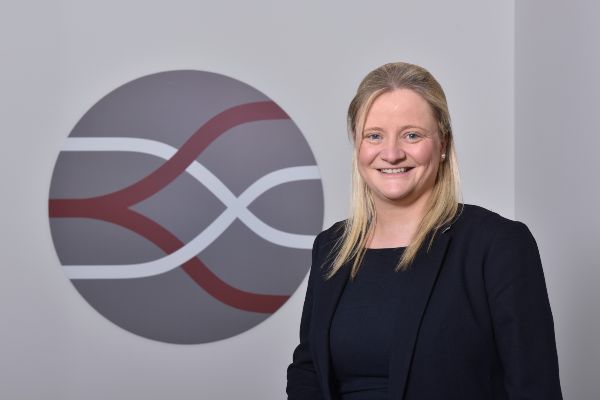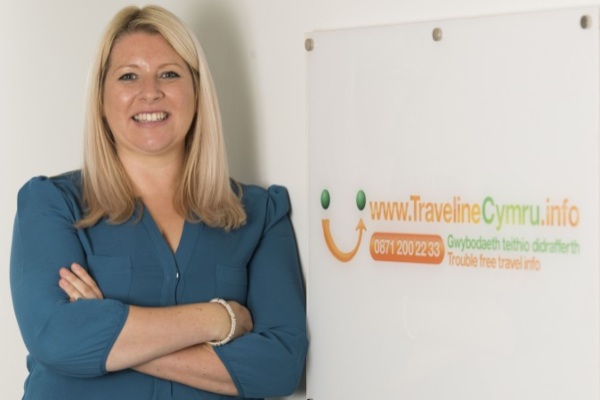In England the Bus Services Act contains regulations made under the new open data provisions and new ticketing powers that aim to make it easier for bus passengers to use buses, move between different modes of transport and access timetables, fares and routes. However, it is perhaps worthwhile noting that Wales is ahead of England when it comes to those elements regarding publicly available information about bus fares.
Software supplier Omnibus has worked closely with Traveline Cymru and its partners to develop an innovative process for handling fares information, cross-referenced with timetable data. It means that bus users, not to mention potential bus users, can access detailed bilingual bus fares information via the Traveline Cymru service, be that online, through the organisation’s Freephone number, or via its smartphone apps.
The decision to include fares information within Traveline Cymru’s service came about because in the past the organisation’s contact centre agents were frequently asked for fares information.
“At that time, they had huge bound files containing printed fare tables,” says Kevin Roderick, Traveline Cymru’s Service Delivery Manager. “This was a long-winded and cumbersome task that added considerable time to the call length.”
He adds that it had long been agreed nationally that including fares alongside journey planning information was a long-term aspiration “but there was no action being taken so we decided to go our own way and make it happen”.
Roderick believes that the full disclosure of fares data was important for the Traveline Cymru service. “With any other mode of transport, you would be able to easily get the information about what your journey was going to cost, even by car,” he says. “With bus a lot of people usually turn up and trust they can afford it.”
There were obstacles to be overcome, in particular that there was no legal requirement to force operators to disclose their fares to Traveline Cymru when registering a bus service. Fares can be changed by operators largely at will and, usually, at short notice. It means that Roderick and his colleagues rely entirely on goodwill from the operators to send Traveline Cymru updates about when fare changes are made.
Of course, that seems simple when compared to the task of processing the fares information and then presenting it in a standardised format. Initially Roderick and his colleagues tried to extract the information directly from the back offices of each operator’s Electronic Ticket Machine (ETM) supplier.
“However, as we were not direct customers, we had to have individual contracts with each bus operator,” explains Roderick. “The issues arose when back offices were updated or had patches added and we had to return to our system suppliers to make amendments to the software constantly. This became too costly to continue.”
It was at this point that Traveline Cymru began to examine a common denominator that had the potential to provide an effective one-size-fits-all solution. Roderick and his colleagues determined that the ETMs of every Welsh bus operator are effectively reading a fare chart in order to calculate a passenger’s fare, so, effectively, the ETM has the ability to print a fare table for each route.
“This means that they can supply us in electronic format either a spreadsheet, text file or PDF,” says Roderick.
Working with partners that included Omnibus, Traveline Cymru then determined a desired ‘standard’ spreadsheet format from the raw ETM fare table data. From this, software was developed that could ‘read’ Microsoft Excel, text or PDF fare table files and convert them into spreadsheets that would create a standardised data set. The software also has the benefit that it can be used to manually create fare tables for the rare file formats that the software cannot automatically ‘read’.
Rob West, Solution Architect for Omnibus, explains what the team did to enable the two sets of data, fares and timetables, to work together in the journey planner: “There is no standardised bus stop location code common to both the fare data and the timetables. We therefore developed a GIS-based tool that assists a skilled and knowledgeable user to cross reference the fare stage codes used in the standardised fare data with the NaPTAN codes used in each timetable route variant, to get the two data sets working together.”
It has been a lengthy and complex process to reach the stage where the majority of fares information is now freely available to the public.
“We started this process as far back as 2014 or 2015,” admits Roderick. “We did not make any real progress until the middle of 2016 when we set up the current system. We initially had good response from the larger operators and local authorities and were able to create around 65% of available fares quite quickly (beginning of 2017). This slowed somewhat when we went for medium operators and are currently holding around 90% of all fares.”
Traveline Cymru is now actively working with smaller operators in order to include their fare information but Roderick admits that this has its challenges. “This is likely to be slower work as they have numerous other tasks to perform and less knowledge of their ETM back office functions,” he says. “We will, in all likelihood, visit each and offer to extract the information on their behalf.”
“This has been an exciting project to have been a part of,” says Michael Meilton, Special Projects Manager for Omnibus. “There is a reason why this hasn’t been done before as it is extremely complicated to do, but Traveline Cymru is streets ahead of its counterparts in England who are faced with the challenge presented by the Open data elements of the Bus Services Act, which is still only in the planning stage. Traveline Cymru established a need to provide more comprehensive information to passengers and found a practical way to deliver results in a reasonable period of time.”
Despite these challenges, Roderick says the process has been valuable with extremely positive feedback. “All have welcomed the inclusion of this information,” he adds. “We are now in a position where we can look at a new phase of development and look at integration of tickets, rider ticket zones and improvements to how fares are displayed to customers.
“We believe that having all the information a customer needs to plan and make a bus journey improves the customer experience and, although it has been a difficult process at times, the outcome is well worth having.”
In addition to certain elements in the fares data process, Omnibus also supplies Traveline Cymru with the software to create and export timetable data for the entire country.
“The requirements on operators to provide additional data are forever increasing,” Meilton continues. “Omnibus continues to play a significant role in data exchange, by allowing operators to export data electronically (such as Electronic Registrations), and providing data tools for organisations including Traveline Cymru, to process it.”
Oldham-based Omnibus supplies scheduling software and management tools to numerous bus operators across Wales, including First, Cardiff Bus, Newport Transport and ComfortDelGro subsidiary, New Adventure Travel.
This article was first published in Passenger Transport’s special ‘Buses in Wales’ publication in 2018.







